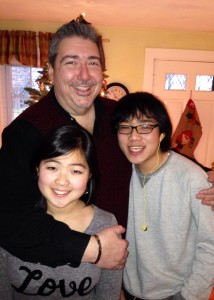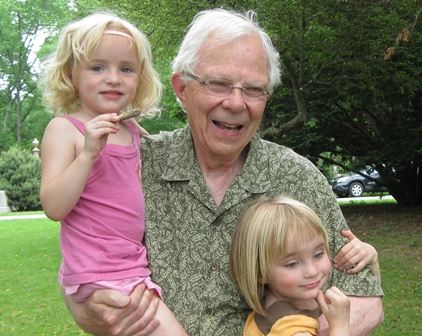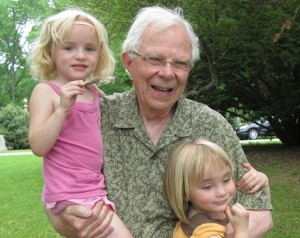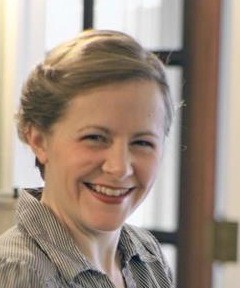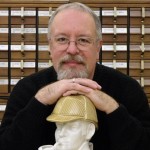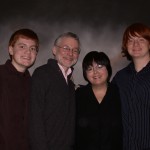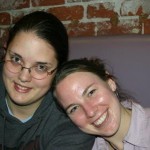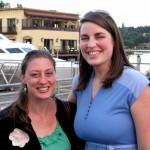On February 4th I was informed by Covenant leaders that they were terminating their partnership with me as a church planter and Christ Church: Portland as an official church plant of the Evangelical Covenant Church. The reason: my personal convictions and advocacy for the full inclusion and participation of LGBT Christians in the church at all levels of membership and leadership, receiving the same call as any other Christian would to discipleship and faith, community, fidelity in relationships.
In terms of my position on human sexuality, I agree with the arc of the Covenant’s position, which: upholds celibacy in singleness and faithfulness in heterosexual marriage as the Christian standard. I only differ in my convictions that the call to celibacy in singleness and the call to Christian marriage be extended to both “straight” and “LGBT” followers of Jesus in our churches.
In 2004, the ECC’s Board of the Ordered Ministry offered this word, which stood as Covenant policy on human sexuality matters, with the caveat that “The following is a report from the Board of the Ordered Ministry to the 119th Annual Meeting in 2004. It represents what we have discerned thus far.”
For more on the Covenant’s position, read: http://www.covchurch.org/…/Human-Sexuality-Guidelines-for-M…
In the run-up to that official 2004 declaration, and all along the way since then in my licensing and ordination conversations, church-planter’s assessment, and in private consultation with ECC leaders at all levels of local, regional (Conference) and denominational leadership I shared that I believed the policy statement was incomplete, and the call to continued discernment, as inferred by the Board of the Ordered Ministry, was a good word that we should continue to reflect on. I was urged that the Covenant was a safe place for me to hold these personal convictions and that discernment would be, of course, an ongoing matter as we rooted ourselves in Christ, dwelled deeply in the Scriptures, listened with pastoral ears to our local communities, and followed the movement of the Holy Spirit.
I, in no way whatsoever, believe that LGBT inclusion is an essential matter of faith. For me, it comes down to my pastoral sensibilities and concern for my local community and broader ministry context. It’s my pastoral convictions that undergird my advocacy on such matters, as they have in my advocacy around poverty, racism and global health.
Let me be clear: There are wonderful, faithful Christians who seek to include LGBT persons in their local ministry contexts and congregations, stopping short of Christian marriage. They are doing wonderful work on anti-bullying and other such challenges that the LGBT community face every day.
I count such congregations and their leaders as companions and colleagues in the great journey with Jesus we’ve each been magnificently gifted by a God who loves us with a love we can barely comprehend. We’re better together.
My sincere hope and desire was that we, in the Evangelical Covenant Church, could maintain our historic ethos of Christian freedom on such matters.
In recent months, as I heard the testimony of faithful Christians who happened to be gay, the narratives were immensely similar: experiences of exclusion, alienation, with many suffering from clinical depression or suicidal thoughts. Hearing these stories happened during a season in which I was pigeon-holed by Covenant leaders to articulate my personally held convictions once again. I could no longer keep fully silent on these matters. In fact, I heard God calling me out to speak faithfully on such matters.
As a result, we lost not only our faith family support system in the Covenant church, we lost the next two years of funding. Curiously, I remain ordained in the Evangelical Covenant Church and will have a meeting with ECC leaders in March or April to further understand the parameters of such an ordination, serving a former Covenant church plant.
I share this testimony, an open letter to my Covenant friends, to live in the light of my convictions. I share it out of a spirit of love and unity, not hostility or division. I share it in the hope that in the end love and faith triumph over conflict and fear.
I’m also excited to share that you’ll hear from members of Christ Church’s core team a week from now, about who they are and why they’re excited to be part of our brand new congregation, taking root in Portland. Stay tuned.
FAQ
1. Where can I read more about Biblically rooted, Christ-centered inclusion of LGBT folks in the church?
I’d start with a handful of books including: “Changing Our Mind,” by David Gushee, “God and the Gay Christian” by Matthew Vines, “Torn” by Justin Lee, “A Letter To My congregation” by Ken Wilson,” “Does Jesus Really Love Me” by Jeff Chu. I’d Google Vicky Beeching and hear her story. I’d check out the video debates held by Tony and Peggy Campolo on said topic. I’d check out what Steve Chalke and Oasis UK have released on inclusion.
But most importantly, I’d reach out to LGBTQ friends, family, or fellow congregants and share a cup of coffee or tea and listen, listen, listen. And listen some more.
Also, check out www.mf4inclusion.com – a group of Covenanters committed to a Biblically, Christ-centered conversation on LGBT inclusion.
2. What about those Christians who believe that they are only called or Biblically guided to live out their LGBT orientation only in celibacy?
It’s monumentally important to honor these convictions. And I’d also read
“Washed and Waiting” by Wesley Hill, a gifted Biblical scholar with a pastor’s heart.
3. What about reparative therapies for LGBTQ Christians?
It’s my conviction that we must listen to and honor ALL of these stories, including those that have undergone, what they discern, is a successful transition to heterosexual living. I have dear friends whose experience would be similar and I do not in any way
4. Is Christ Church: Portland a one-issue church?
Absolutely not. As we’ve gathered for worship and mission these past 11 months we’ve been focused on both discipleship and compassion, mercy and justice. We’re particularly passionate about our partnership with a local public school who is bridging the education gap for at-risk kids, we’re particularly passionate about our work on racial reconciliation in an ever-gentrified context, and have worked on homelessness and hunger, immigration reform and fighting human trafficking and serving members of the sex-industry in Portland.
5. How can we learn more about Christ Church: Portland?
Visit our website: www.christchurchpdx.org or check us out on Facebook
Also, please prayerfully consider supporting our Indiegogo campaign here:http://igg.me/at/christchurchpdx/x/2867278
